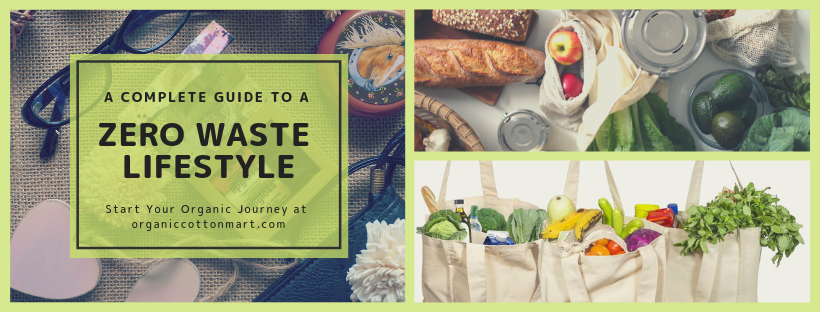If you have heard of the lifestyle pattern called ‘zero-waste’ and are kind of clueless about what it entails or are a little fuzzy on the details, this article will help clear your confusions. It might even encourage you to adopt this new lifestyle.
In simple terms, a zero-waste lifestyle is a style of life where one is encouraged to minimize his or her generation of waste and use goods that can be recycled.
The ultimate aim of this kind of a lifestyle is that there should be no waste to send to landfills, oceans or other places which could pollute the environment starting from an individual level. It’s a pro-green kind of a lifestyle.
As for why the zero-waste lifestyle is so important and has caught on the fancy of individuals and several governments is because it helps combat the problem of pollution at the grassroots level.
A zero-waste lifestyle follows the philosophy of ‘cradle-to-cradle’ where every product manufactured is later recycled at the end of its life cycle so that there is ultimately no waste generation from these products.
The zero-waste lifestyle is useful in saving money as you do not need to invest in multiple plastic items like bags, straws and more.
Instead, you can use items like glass jars, reusable produce bags, steel utensils and many more similar items that are recyclable and reusable. Secondly, this lifestyle promotes sustainability which is the dire need of the planet at the moment.
With the increase in global temperatures and the glaciers melting, sustainability of the planet, and the species that live in it including human beings are threatened.
Therefore, if one can do even a tiny bit to help promote sustainability by taking to the zero-waste lifestyle, it will benefit one and all.
This kind of zero-waste lifestyle also has health benefits. With the increased amounts of non-biodegradable plastics that go into the landfills daily, risks run high of diseases including lung cancer, respiratory problems, and birth defects.
Reducing plastic waste can help combat these health issues and make the planet safer for humans.
Table of Contents
Timeline: A Brief History of Zero Waste
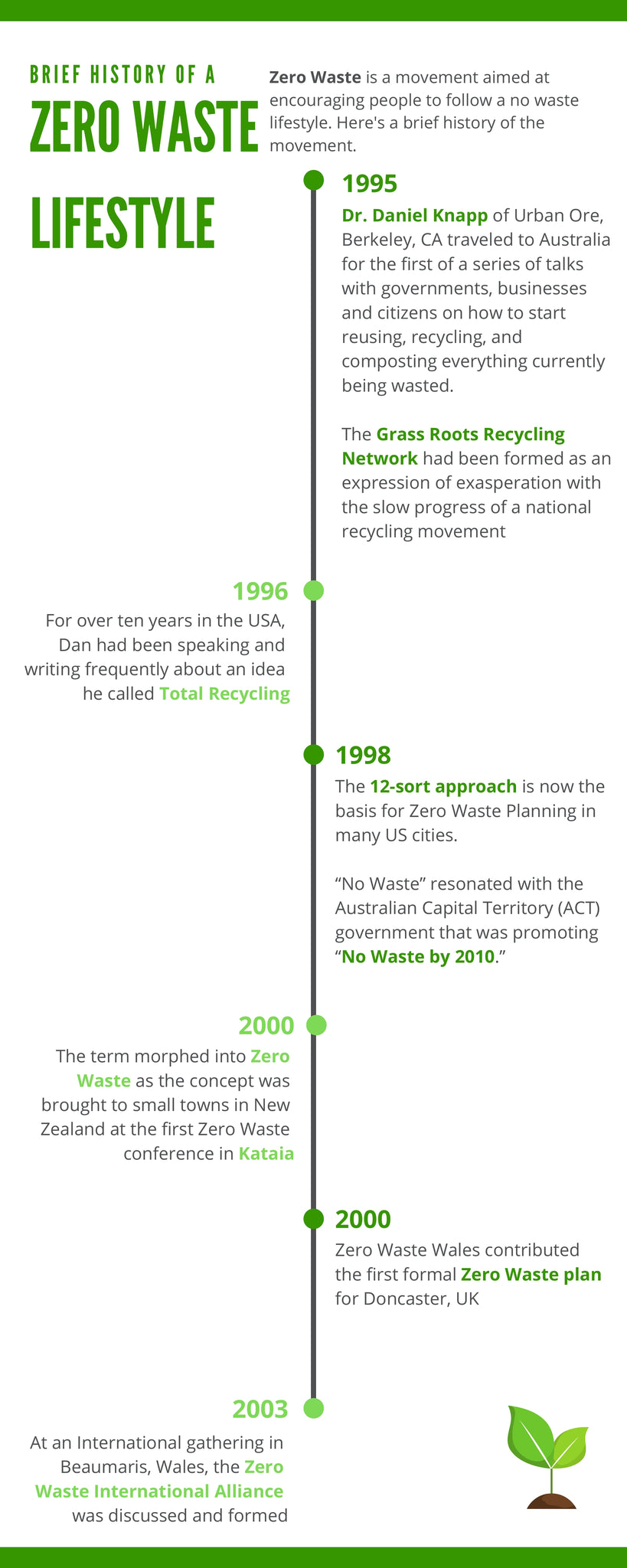
Why Is Zero Waste Lifestyle Important?
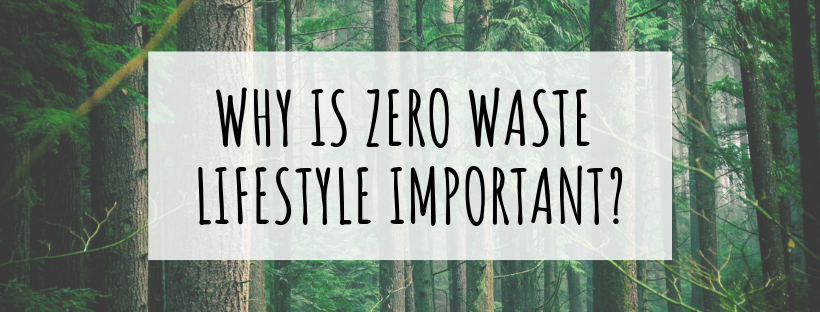
Global warming is a real concern. The polar ice caps are melting, and there are major changes contributing to climate change as is seen by Polar Vortex happening in the United States of America.
In a situation like this, it is very important that more and more people try and adopt a zero-waste lifestyle. It is one of the prime factors in reducing the impact of the human race on climate change which is the dire need of the hour.
Once we start following the 3R of a zero-waste lifestyle, which is reducing, reusing and recycling, we can reduce the emission of harmful greenhouse gases. It has been estimated that our extravagant lifestyle may contribute to about 42% of all GHGs emitted as of now.
How Does Zero Waste Lifestyle help?
A zero-waste lifestyle helps reduce pollution and helps in the conservation of resources.
If we want to live a long and healthy life and wish the same for our upcoming generation, it is mandatory that we start following a zero-waste lifestyle to reduce consumption.
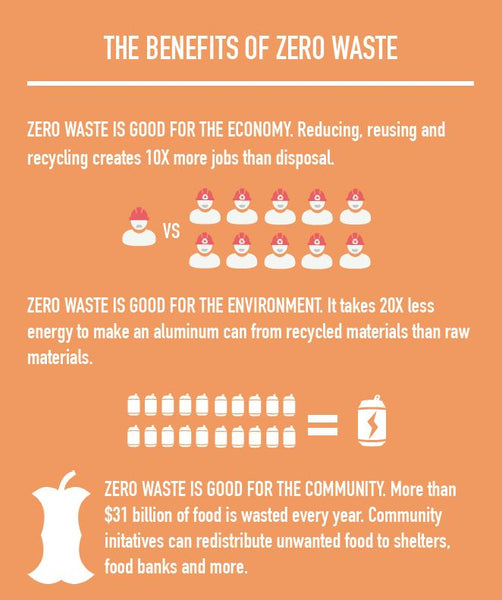
Image credit: Toronto Environmental Alliance
This includes initiatives including but not limited to car-pooling to save petrol or diesel, eating frugal and healthy food that does not harm the environment and not wasting a vast amount of resources on packing materials.
We will also be contributing to the environment because a zero-waste lifestyle will keep waste away from overflowing in the landfills which choke the environment in general.
How Can This Lifestyle Empower Society?
Practicing a zero-waste lifestyle also helps in the promotion of social equality and helps in community building.
People who follow the same lifestyle mostly end up flocking together and that will help in social equality and will in tandem foster the feeling of community amongst people.
However, the most important part of following a zero-waste lifestyle is that it actually helps in the creation of a cottage industry which in turn promotes economic independence in the community of a certain place. Therefore, it is helpful even for economic growth in the world.
Assessing Your Waste

We all know that plastics are non-biodegradable. They cause tremendous harm to the earth as it takes a long time for them to decompose.
Not only that, over usage of plastics lead to the death of numerous animals, living both on land and water, and at the same time it inadvertently also harms human beings.
Assessing the usage of plastic
It is very important we assess the use of plastic in our daily lives. Usually, plastic is used in the packaging of food and water.
Apart from that plastic is also used in the form of plastic bags for grocery shopping. There are quite a few instances where we actually end up using plastic even when it is not strictly necessary.
This is where we should stop using plastics and focus on using organic materials for a healthier world.

Image Credit: Korea Joongang Daily
In the industrial sector, plastic is used in big factories for packaging of their products which is later burnt up in incinerators which causes pollution in the environment.
So, where do we overuse plastic?
We overuse plastics when we use ‘use and throw’ objects made of plastics. Apart from that plastic straws are a huge point of concern.
Not only that, we often overuse plastic bags for grocery shopping at the cost of the environment which should definitely be avoided.
Use of industrial plastics should be banned and, in its place, one should try to find our organic alternatives for packaging like Comforter Storage Bags.
This would give a boost to the world environment and will also be a huge contribution to the fight against pollution and climate change.
Places and ways to avoid using plastic?
There are many small ways of avoiding the usage of plastic. We can always use multi-purpose reusable produce bags for grocery shopping instead of plastics while shopping in supermarkets.
Products such as pens that are heavily used in colleges and workplace can also be made with organic material and made to last instead of being thrown away at the first possible chance.
Apart from that, we can use more metal straws or organic straws in restaurants.
Last but not least, we need to find an acceptable alternative to the use of industrial plastic, and once that problem is combated, we will be well on our way to avoid plastic usage.
So, these are some of the best ways to stop the usage of plastic to make our planet more environment-friendly and live.
Common Misconceptions About Zero-Waste Lifestyle
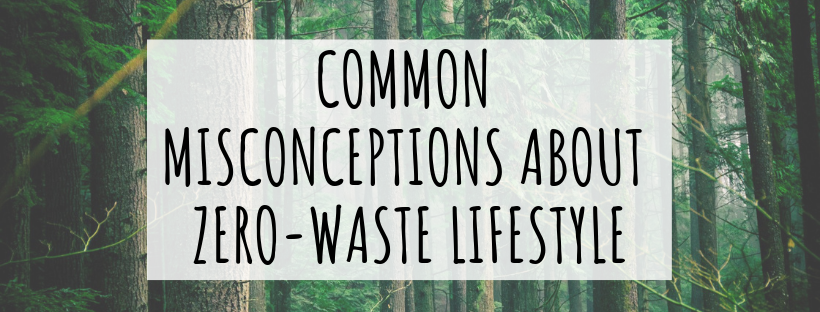
With the changes in our climate taking place at a rapid pace, it is safe to say that global warming and climate change is no longer a myth.
Not only that, the undue pressure on our environment is creating a lot of problems including the deaths of a lot of fishes and animals leading to the extinction of certain species.
To combat this gigantic problem, many people have started living the zero-waste lifestyle the world over.
However, there are still many who are not taken in by the idea of a zero-waste lifestyle, and for them, we’d like to bust some myths!
1. Composting is 100% effective:
Yes, it is true that composting your biodegradable food items lead to zero waste and help the soil retain its fertility; it is not a hundred percent effective.
The simple reason for this being that you cannot add too much of dairy products or products containing oil in your compost.
2. If you live a zero-waste lifestyle, it literally means you waste nothing:
Wasting absolutely nothing while living a zero-waste lifestyle is a myth. This is because it is not humanly possible to waste absolutely nothing.
All of us end up wasting something or the other. The important point is to know where you are unnecessarily wasteful and curb that part.
3. A zero-waste lifestyle is expensive:
This again is completely untrue. It is not expensive to lead a zero-waste lifestyle. On the other hand, it might actually be cheaper than the continuous use of plastic.
If you keep reusing and recycling your cloth bags and using your compost to fertilize the soil and grow part of your own food, you tend to cut down on costs significantly.
4. A zero-waste lifestyle requires you to go vegan:
One of the biggest reasons why non-vegetarians are wary of the zero-waste lifestyle is that they have a misconception which says that to live a zero-waste lifestyle, one has to go vegan. This is not true.
You can most definitely consume meat. The only catch here is that you do not indulge in wasteful consumption. There is no requirement for you to change your eating habits to suit your lifestyle.
Thus, once these myths are cleared in the minds of the general public, we can hope that more and more people would navigate towards the zero-waste lifestyle and we’d have a more positive impact on our planet.
Adopting A Zero Waste Living In Every Aspect Of Your Lifestyle
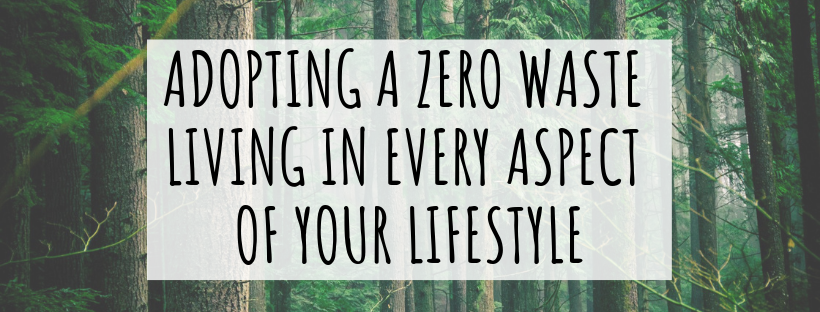
Zero waste is the way to go these days. The lesser we waste in terms of paper, plastic, food and much more, the better we will be at protecting the earth from man-made causes of devastation and destruction.
If all of us started contributing in our own small ways by adopting a zero-waste style of living, then we will make the world a better place of living both for ourselves and for our future generations.
Here is a video of environmental activist, Lauren Singer, giving a TED talk on why she lives a zero waste life.
Here are a few easy ways to apply zero-waste living in every aspect of your life.
1. Wrapping your gifts with reusable cotton produce bags:
We all know how much of a waste it is to use plastic wrapping papers to wrap our gifts. This waste can easily be stopped if only we switch to using reusable cotton produce bags that can be recycled and used multiple times without causing damage to the environment.
2. Use steel lunch boxes to store your food instead of plastics:
Food is one of the most important aspects of our lives. And the best way to store food without the help of plastic packets is to use steel lunch boxes.
Not only are they more environment-friendly, but you also don’t have to keep buying lunch boxes every alternate month to store your leftovers.
3. Use e-tickets instead of printing them out while you go on vacations:
Using e-tickets instead of printed ones will help save a huge amount of paper and will be extremely eco-friendly. It will be a small step towards living a zero-waste life.
Plus, e-tickets are much easier and handier to travel with considering you have your tickets at the tip of your fingers.
4. Use steel or recyclable straws instead of the plastic ones:
While drinking soda or juice, try using steel straws or recyclable ones to contribute less waste towards the environment.
Plastic straws take years to decompose and are extremely toxic to animals, bird or fish that might end up consuming them.
Thus, now that you are more aware of the waste in the world around us, you might want to follow these eco-friendlier methods and use these zero-waste products to live a ‘greener’ life.
And once we all do our bits, we can help make the world a much greener place to live in.
Saving Money Through Zero Waste Living
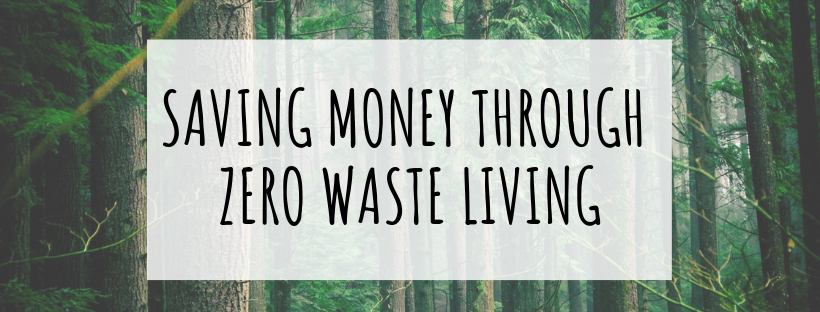
Some of us are under the misconception that a zero-waste lifestyle can be pretty expensive. The concept of having to spend extra money deters us from finally going through with the zero-waste lifestyle no matter how good our intentions actually are.
However, it is not always true that we have to spend more to live this kind of a lifestyle.
Here is a video about how Shelbizlee saved thousands of dollars by going the zero waste way.
There are many ways to save money through a zero-waste living as well, and we have a small list of the same for you!
1. Go paperless:
One of the biggest ways to save money is by going paperless in your daily life. Nearly everything these days can be done digitally.
Why would you want to spend all your money on notebooks and notepads when you don’t even end up utilizing half of them?
Going paperless will help you live a zero-waste lifestyle and also indirectly save money. Toilet paper rolls and paper napkins can also be substituted for clothes or reusable cloth napkins in a bid to save money.
2. Buy only as much as you will end up using:
When you follow a zero-waste lifestyle, you actually try to cut down on your wasteful expenditure by buying things that you would definitely need.
This obviously ends up helping you save money that you would have otherwise spent on things you did not need. You can call it as one of the best perks of having a zero-waste lifestyle!
3. Get your own bag while grocery shopping:
You heard that one right! Instead of spending a lot of money on plastic bags that are offered by the grocery stores while you shop, you can just get your own reusable grocery shopping bag.
Have you ever wondered how much you spend on a daily basis on plastic shopping bags? That expense would be cut to zero, saving you a lot of money.
4. Carry organic tote bags instead of expensive bags on a daily basis:
Organic tote bags not only look really quirky, but they are also very cheap when you compare it to other expensive bags.
That in itself saves you money and since they can be reused a lot of times it also helps you go clean and green when it comes to protecting the environment.
Well, there you go!
With subtle changes in your lifestyle, not only can you go zero-waste but also save yourself a lot of money. These handy tricks will further help you out in your quest for living the zero-waste lifestyle and at the same time make you a contributor to the welfare of our planet.
Effects Of Zero Waste Lifestyle On Earth
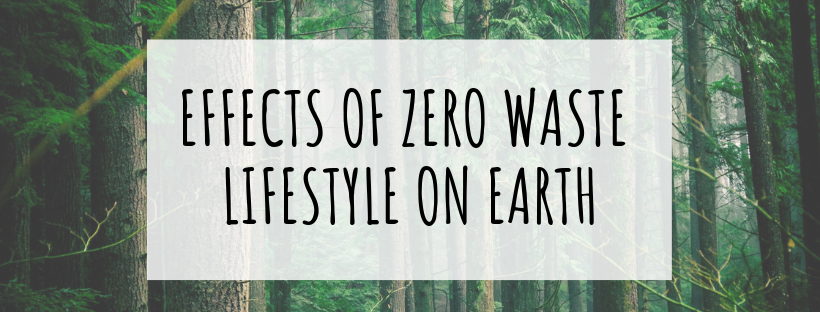
The effects of global warming and the melting of the ice-caps are far-reaching and intense.
To save the planet from devastation and destruction, many people are moving from a wasteful lifestyle to a zero-waste lifestyle.
Apart from helping people themselves to lead a healthier lifestyle, it also helps impact the Earth positively through the following ways.
1. Decreased usage of plastic will help save marine population:
It is no secret that fishes and other water animals are dying every day in the ocean as a result of plastic pollution.
It has become one of the biggest challenges faced by environmentalists the world over. It is therefore only but natural that with decreased use of plastic, there will be a positive impact on marine life.
This is one of the biggest effects of the zero-waste lifestyle on earth.
2. Increased soil fertility:
Often, people who follow the zero-waste lifestyle decompose their waste as manure.
While this is not a rigid aspect of the lives of everyone who decides to abide by a zero-waste lifestyle, this organic manure helps increase the fertility of the soil which is a positive effect of the zero-waste lifestyle. Good soil fertility leads to good produce which helps continue the cycle.
3. It helps combat air pollution:
When you follow a zero-waste lifestyle, you try to reduce your carbon footprint as much as possible.
This can be done in multiple ways including traveling by public transport likes buses, trains, and metros as well as car-pooling. This helps combat severe air pollution which is one of the main problems plaguing the world today.
This also leads to reduced smog which can cause major health problems in humans and recently many cities across the globe have been battling with it.
4. It reduces pollution caused by inorganic landfills:
Inorganic landfills cause pollution of many types. They include air pollution, water pollution and more.
When an individual reduces the amount of waste he or she generates, that will again reduce the total amount of inorganic waste which leads them to these toxic landfills.
Thus, now that you know all the positive impacts that you would be making on the environment in your own little way once you embrace a zero-waste lifestyle, so, why not try giving it a shot?
After all, nothing is better than living a healthy lifestyle and making the earth a safer place for yourself and your future generations.

